SPIRITUAL SANCTUARY “KEDAR KHAND” OR KEDARNATH
Greetings from the magical land of Kedarnath, where exploration is around every corner! This enchanted location, tucked away amid the majestic Himalayas, beckons with its breathtaking beauty and ethereal allure. Kedarnath, with its serene rivers and towering peaks, enchants everyone who steps inside. Prepare yourself for an amazing journey that will include breathtaking scenery, historic temples, and thrilling adventures. Kedarnath has amazing things in store for everyone, regardless of their interests in the great outdoors, extreme sports, or finding inner peace. Now let’s get the adventure started!
History
At this place in Satyayuga, a king named Kedar performed severe penance; hence, this area is also known as the Kedar Kshetra. The literal meaning of kedar is swamp, and Lord Shiva is also the ruler of the marshy land; hence, the name Kedarnath was derived from the husband of Dal-dal (kedar). This place, Kedarnath, is situated on a peak named Kedar in the Himalayan mountain range.
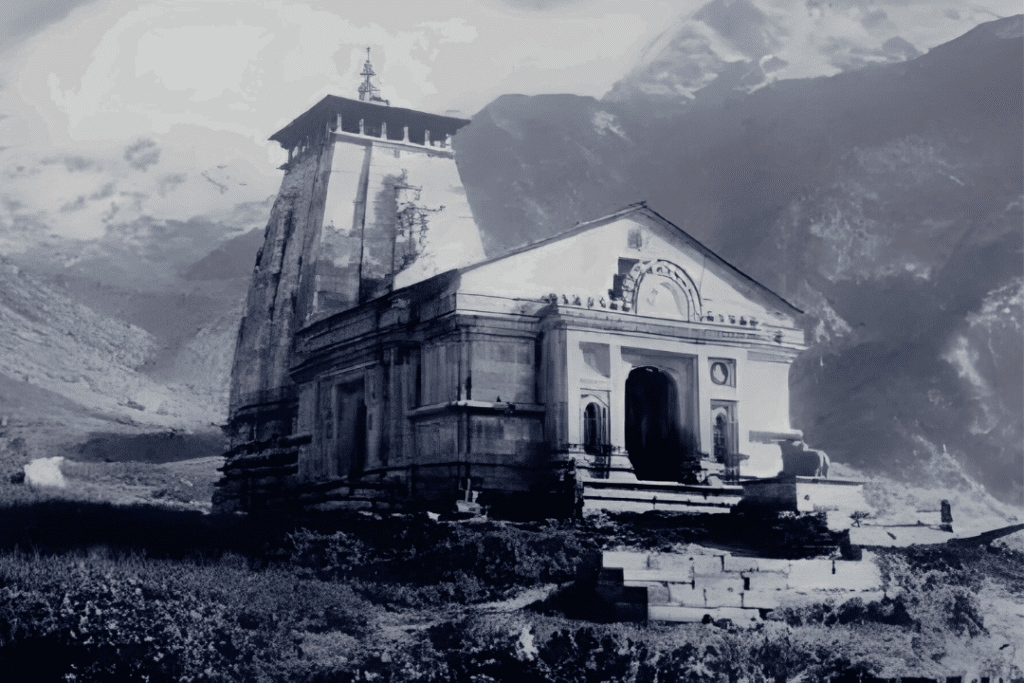
The story of Panchkedar is believed to be such that after being victorious in the Mahabharata war, the pandavas wanted to be freed from the sin of frantricide. He was determined to seek the blessings of Lord Shankar, despite his anger towards those people. For this, he wanted to get the blessings of Lord Shankar, but he was angry with those people. The Pandavas chased Lord Shiva, who transformed into a bull and disappeared into the earth at Kedarnath. It is believed that the temple was built at the exact spot where Lord Shiva disappeared; the lingam inside was naturally created by the elements of earth, air, water, and fire.
The Kedarnath Shiva Temple, over 1,200 years old, is said to have been constructed by the Pandavas in the time of the Mahabharata. Its exact construction date remains unknown, yet it is regarded as one of India’s oldest and holiest temples.
Ancient Shiva temples, shrines and the Himalayan ranges make Kedarnath a popular destination. Additionally, the region is surrounded by several other snow-clad ranges, including the majestic Kedarnath peaks and the nearby Chorabari Glacier.Kedarnath, located in the Indian state of Uttarakhand, has become famous due to the presence of the Kedarnath Temple. The town serves as a nagar panchayat in Rudraprayag district and serves as the starting point for the Kedarnath Yatra.
Shivling
Lord Shiva, who was being chased by the Pandavas, transformed into a bull and vanished beneath the surface at Kedarnath. It is believed that the temple stands on the exact location where Lord Shiva disappeared, and the lingam within the temple is said to have been naturally created by the elements of earth, air, water, and fire.
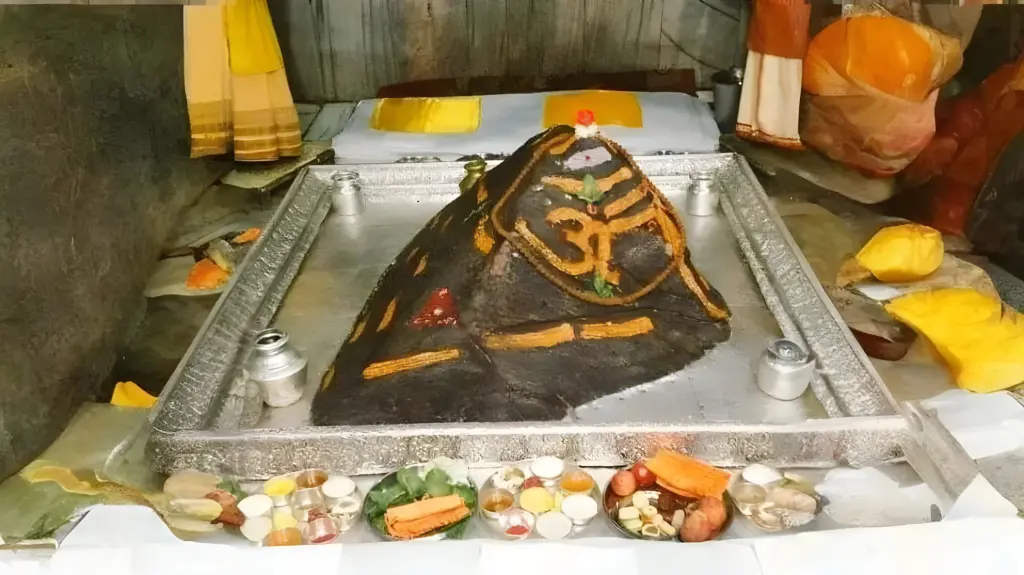
The Pandavas constructed temples at five locations, known as the Panch Kedars, to honor Shiva,which absolved them of their sins. Lord Shiva also pledged to reside at the holy site as a triangular jyotirlinga. This is the reason why Kedarnath is highly esteemed and renowned among worshipers.
Opening Timing
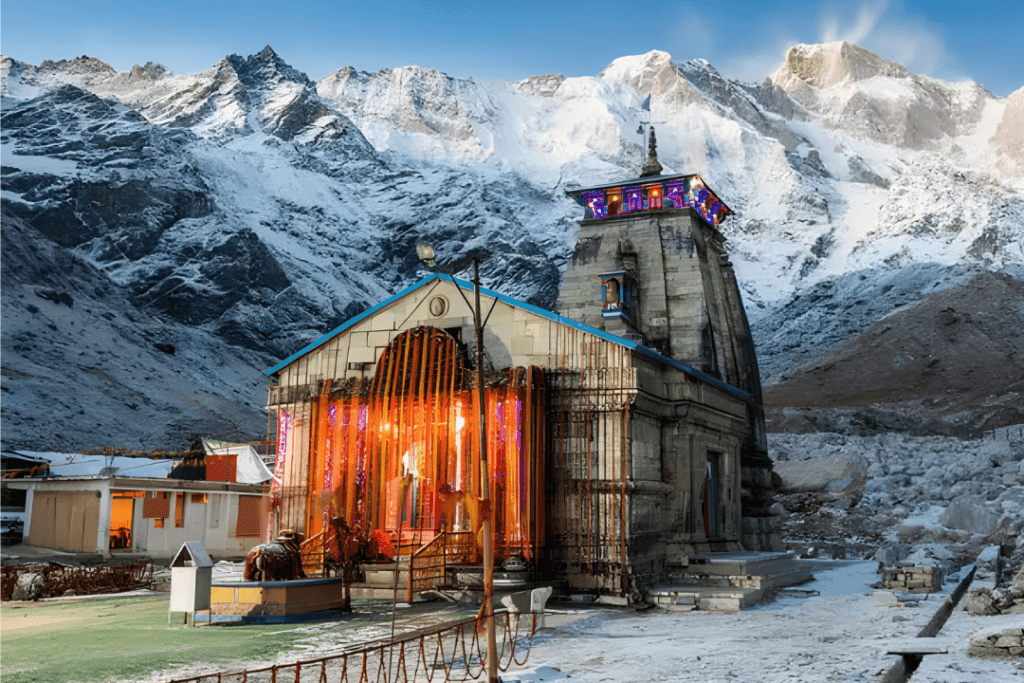
The pilgrimage to Kedarnath in 2024 marks the commencement of the sacred journey to the revered Kedarnath temple, a place of worship devoted to Lord Shiva. Today, on May 10, 2024, at 7:00 Am, the doors of this holy temple were opened, and a special puja was conducted by the priests. Prior to the temple’s opening, preparations were made to welcome devotees from far and wide.
The best time to visit Kedarnath
The ideal period to visit Kedarnath is from April to June, characterized by pleasant weather and temperatures typically ranging from 10 to 15 degrees Celsius. During this time, the Char Dham Yatra commences, attracting pilgrims from all over the country to Kedarnath.

The temperature ranges from 5 degree Celsius to 20 degree Celsius, the snow starts melting, and the Kedarnath temple becomes open to devotees. May is particularly busy, with the temple doors opening in late April or early May.
Another recommended period to visit the Kedarnath temple is from September to October , before the heavy snowfall season begins. The temple remains closed from November to March due to snow, with challenging travel conditions and temperatures ranging from 5 degree Celsius to 18 degree Celsius. The monsoon season, from July to August, brings heavy rainfall and landslides, making it difficult to visit.
Budget
On average, a budget-friendly trip to Kedarnath from Haridwar can cost anywhere between INR 10,000 and INR 14,000 per person. Traditionally, the journey to Kedarnath starts from either Delhi or Dehradun, the nearest airports, or Haridwar or Rishikesh, the nearest railway stations. Kedarnath has a well-connected motorable road up to Gaurikund, after which one has to climb a tough 18 kilometers to reach the Kedarnath temple. The entire Kedarnath Yatra generally lasts for 5–6 days.
Kedarnath Is Not An Easy Trip
The hike typically lasts between 6 and 8 hours, with a moderate level of difficulty. It is crucial to highlight that the Kedarnath temple sits at an altitude exceeding 3500 meters, necessitating good physical fitness and proper acclimatization to prevent altitude sickness. The Kedarnath Temple holds great significance as one of India’s Chardhams, which are four sacred pilgrimage destinations. It is also recognized as the 11th jyotirlinga out of the 12 jyotirlingas in the country. Aadi guru Sankaracharya, an esteemed India scholar, established this temple, attracting millions of pilgrims annually to explore the sacred sites in Kedarnath.
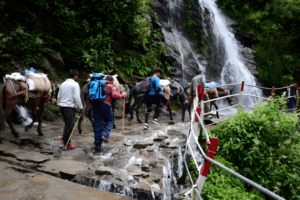
You will undoubtedly carry the enchantment of Kedarnath’s towering peaks and tranquil valleys with you as your voyage through this ethereal land draws to an end. Kedarnath makes an impression, whether it’s from the spiritual energy, the amazing views, or the exhilarating adventures. Are you prepared to make even more priceless memories? Keep the spirit of adventure alive, and let the allure of Kedarnath spur you on to your next big adventure. Keep your cool and keep exploring until next time!

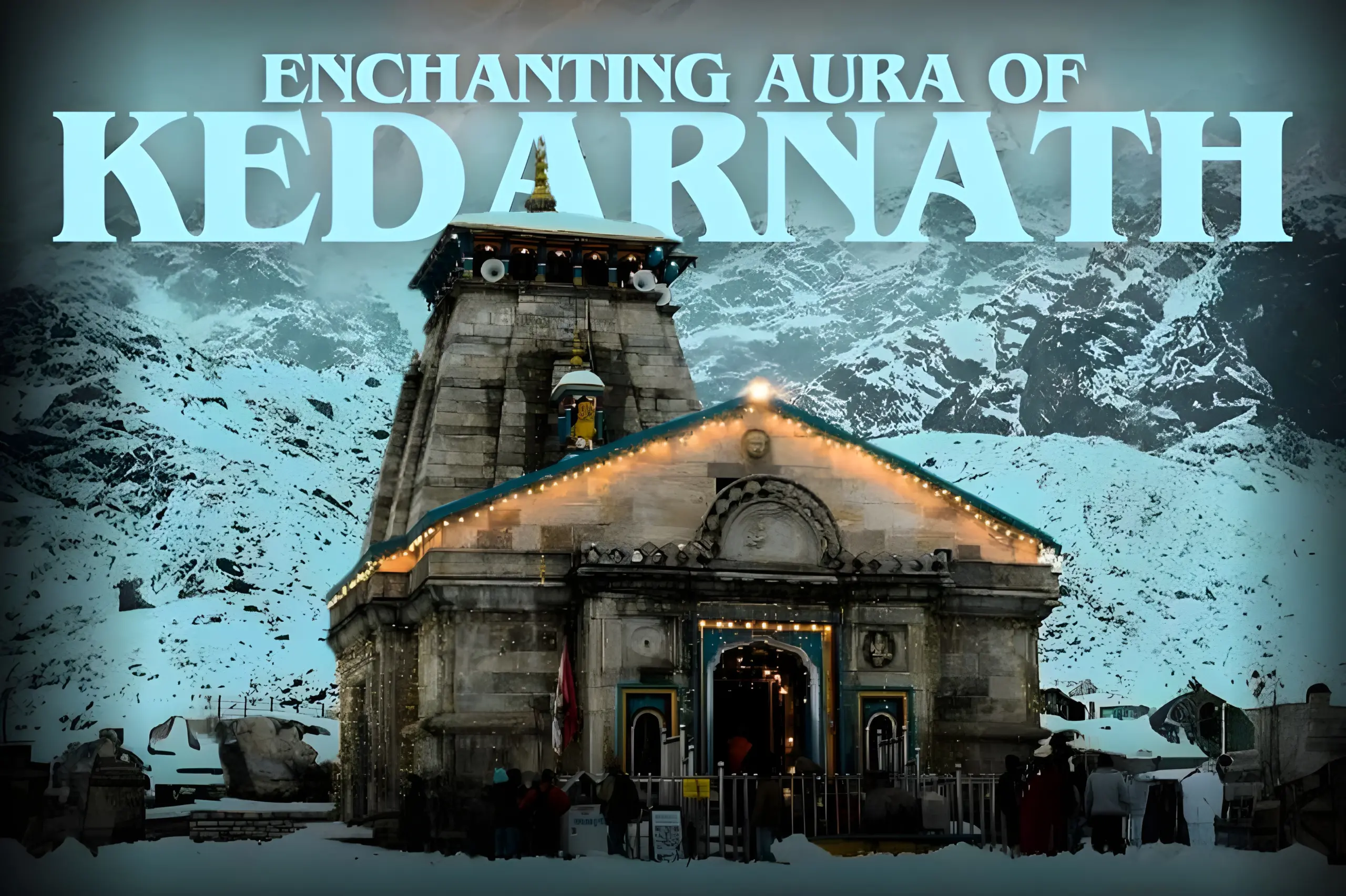
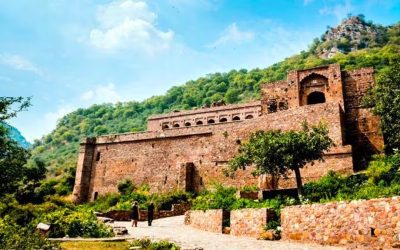





0 Comments